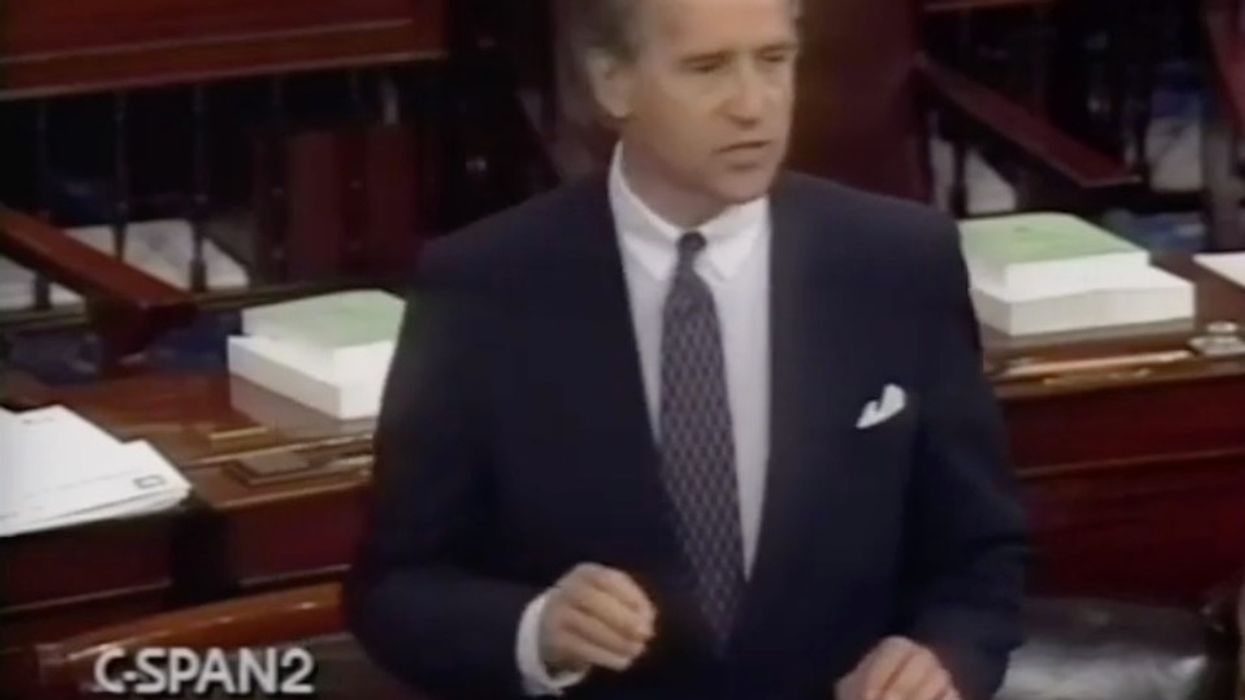
Image source: YouTube screenshot

Well, that's inconvenient
This video of then-Sen. Joe Biden backing the nomination of William Barr to be attorney general in 1991 is making the rounds, courtesy of the Senate Republican leadership.
Needless to say, the left won't love it, because it shows one of the only Democrats with any chance of beating President Donald Trump in 2020 praising the man Trump tapped to take over the DOJ following former Attorney General Jeff Sessions' resignation.
Here is part of what the then-chairman of the Senate Judiciary Committee said of his support for Barr during a longer Senate floor speech:
Throughout his career of public service, William Barr has acted to protect and enhance the authority of the Executive. As Attorney General, however, Mr. Barr must distinguish the interest of the President from those of the public, and he must respect the separate though complementary powers of the three branches of Government. Based on my contacts with Mr. Barr, both before and during his testimony at the Judiciary Committee hearings on his nomination, I believe that Mr. Barr understands and is committed to the dual responsibility of the Office of Attorney General.
At the recent hearings on his nomination, I asked Mr. Barr about his view of the doctrine of separation of powers, and we discussed several areas where the exercise of power has caused tension between the executive and the legislative branches. We discussed, among other things, powers like the power to make war, the power of the Constitution divided between the executive and legislative branches. The responsibility and authority of each branch is distinct. Congress is to declare war; the President, as Commander in Chief, may then conduct war, but, although the roles are separate, the power is shared and each branch must act to take the country into war.
Mr. Barr agreed the Constitution assigns warmaking powers jointly to the Congress and the President. He acknowledged the President cannot initiate an offensive action and, even where the President has latitude to respond where lives are at stake or the vital interests of Americans are threatened, his authority is `provisional,' because it is always subject to Congress' exercise of power. That is in the hearing record.
This testimony indicates to me that Mr. Barr recognizes the Congress and the President must be united in the decision to commit substantial forces to armed hostilities abroad, and it reveals he understands the separate but shared nature of the warmaking power.
Mr. Barr was similarly reassuring when asked about other issues of executive authority. For example, he admitted that as a matter of policy he would like to see the President have a line-item veto. Nonetheless, he continued, after carefully reviewing the issue he `found no basis for an inherent line-item veto in the Constitution.'
On other questions of executive privilege, Mr. Barr said he believes Congress has `a legitimate interest in seeking information' and that `our policy should be one of maximum accommodation,' referring to the policy of the Attorney General's office, the Justice Department. And he put this policy into practice, noting that he negotiated a compromise or accommodation on every request for information he handled while head of the Office of Legal Counsel.
Granted, since Barr's 1991 confirmation, he has had a record of advocating for a strong executive branch with broad powers. So maybe, as Allahpundit noted at HotAir, Biden can say he was "suckered" by Barr. But that's hardly a good look for a man who might want to take on Trump next year.